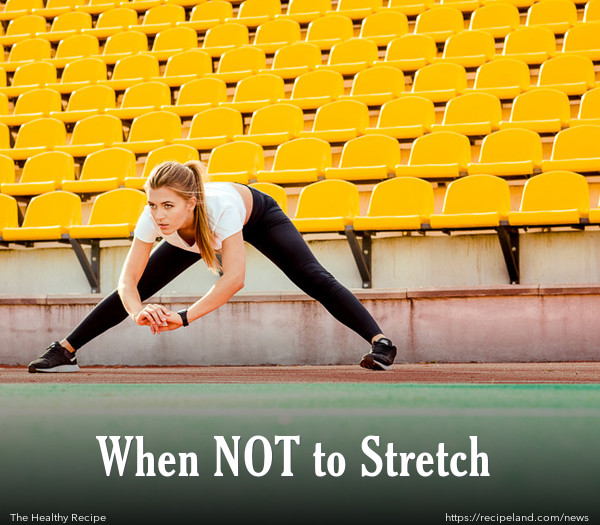You already know many of the good things about stretching, and many of the benefits of stretching. But, there are times when you may be putting yourself at risk of injury.
Here are 6 times that you should avoid stretching.
1. You are recovering from a recent injury.
Stretching is definitely part of most physical therapy regimens, but if your injury is quite new—like within the past few hours or days—then you might want to hold off on stretching. If you overstretch an injury, you run the risk of making the injury worse.
Sheila Ghovanlou, a physical therapist at Providence Saint John’s Health Centre’s Performance Therapy in Los Angeles, recommends that you stay away from stretching if you have an acute muscle strain, acute ligament sprain, or nerve injury/damage.
If you have any sharp or radiating pain, stretching should also be off-limits. Check with your doctor or physical therapist if you are unsure.
2. You recently had surgery.
If you have recently had surgery, especially if your surgery involved the Achilles tendon, then you want to avoid stretching until you have permission from your surgeon or physical therapist.
Ghovanlou states, “Studies show the importance of being aware of limitations with stretching; this allows tissue to heal and restore its function.”
3. You are having muscle spasms or feel knots.
When you are experiencing muscle spasms, or involuntary contractions in muscles, stretching them out won’t really work and you might make things worse. Ingatius Ajuebor, a personal trainer and founder of ANGEL Workout recommends massage instead, to try and release the myofascial trigger points, or knots.
4. You’re feeling cold.
When you are feeling cold, it is usually not a good time to stretch. Whether you’re cold because of the weather or you haven’t warmed up for your workout yet, Ajuebor states, “Your muscles stretch better when warm, so you decrease the likelihood of injury.”
Be sure to warm up before stretching, to avoid unnecessary strain or muscle tears.
5. You are already very flexible.
Are your joints already very flexible? If so, then it is important that you get some professional guidance about stretching, so that you avoid injury.
Joscelyn Shumate Bourne, a doctor of physical therapy and certified strength and conditioning specialist at Columbia Sports Physical Therapy in New York City states, “You might be suffering from stability issues—a lack of control in certain parts of your body like your hips.”
6. You’re just about to start a game or activity.
If you are about to start a game or activity that requires fast, abrupt muscle force, like baseball, soccer, football, etc., you should not be using static stretching (slow extension of muscles to the end of the range of motion) to get ready.
Instead, use active stretching movements, like arm swinging, hip circles, and lunges to warm up.
Stretching is good for you, if you know how and when to use it effectively. Make sure you don’t put yourself at risk of injury!










Comments